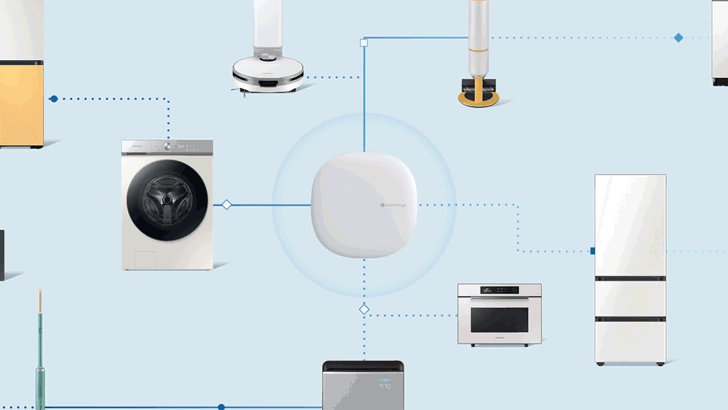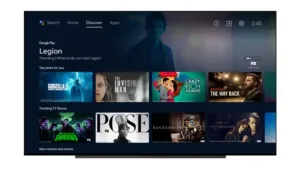In effect, Roku has upgraded its OS because the app is the OS. Google TV received an update a few weeks ago, following on from the December 2002 update of Android TV. The TV OS is going to be at the center of future home hubs, but it has to start with the existing user experience.
| Features | Android TV | Google TV | Roku TV OS |
| Operating System | Android TV OS 13 | Android TV OS 13 | Roku OS 12 |
| User Interface and Appearance | Varies by manufacturer | User-centric, personalized, and sophisticated interface. Focusing on recommendations. | User-centric, simple, and customizable home screen. Focusing on Live TV and content discovery. |
| Apps and Features | Google Play and thousands of apps | Google Play and thousands of apps | Large selection of channels, including live TV and premium subscriptions |
| User Profiles | Multiple Google accounts can be registered | Requires creating a separate Google TV user account | Manage devices and preferences through the Roku Account Hub |
| Remote Control | Physical remotes provided | Physical remote available with Google Chromecast | Physical and mobile app remote with dedicated Live TV Channel Guide button |
| Parental Controls | PIN access and third-party app support | Sophisticated controls with app blocking and content censorship | PIN access and third-party app support |
| Compatibility with YouTube | Available as a preinstalled app | Access to YouTube TV and imported titles from YouTube | Available as a preinstalled app |
| Compatibility with Virtual Assistant | Compatible with Google Assistant | Compatible with Google Assistant | Compatible with Roku voice commands |
| Updates | Based on the Android version | Based on Chromecast firmware versions | Automatic updates—the OS and the application are the same thing |
| Cost | Varies by manufacturer | Cost for supported devices | Depends on device |
Roku’s TV OS is Roku’s TV app. There isn’t much to differentiate Google TV from Android TV. Android TV is probably the least functional option when you compare it to the two eponymous apps but it is free, and that’s all some OEM need.
The argument favoring Roku and Google TV are they make it easier for smart TVs attract users because they are fully formed, user-centric applications. It’s just hard to tell how you would differentiate between the two or is it?
Google TV showcases Android TV as its OS, but it is neither customizable for manufacturers nor is it cheap. Is it a showcase, the future of Android TV, or a competitive TV app? Hard to tell. That seems to be the case with a lot of stuff that Google does. You start asking questions like, where’s this going? Is it going to be huge or is the company just dipping its toes in the water? Is it just fear of missing out (FOMO)? The company that ruined internet search sometimes feels like a spoilt child with too many choices and not enough of an attention span to make them stick.
Roku TV has no such issues. The OS is the app, the app is the OS. You can see a clear progression from making set-top boxes (STBs) to installing the OS on other manufacturers devices to fully realizing the product as a continually updating application. It is neither better nor worse than Google TV. It does, however, exist as a fully focused TV product. Google TV always feels like Google’s app that sits on the real product, Android TV. Pick a side, Google, and just go with it.
Google could make Android TV more functional, more user-centric, more like Roku TV, but I suspect that the politics of Android means that it has to stay away from subsuming the OS with a fixed interface, and locked-in features. That makes sense, technically. An OS should be its own thing, a platform to build upon, and the OEMs are better positioned to decide how they want to develop on it. The problem with developing for Android is that it is free to all, and if you want to really take advantage of what it has to offer, you have to be really good at developing software for it. Unfortunately, because it is free, it tends to have no barriers to all types of development, sometimes without the level of discipline or expertise that the platform demands. With Apple, you know what you are building, what it will run on, and you don’t mess with the formula. On Android, it’s the wild, wild west.
Does that mean you should lean towards Roku TV, even if it isn’t free? That’s a big commitment, too. At least you don’t have to worry about how your users will react. They’ll be fine. You won’t have to support or develop much around it, saving you time and money, and it’s Roku’s problem dealing with user needs and wants. I am of the school of thought that believes that you stack your TVs high in the store, and sell them through as quickly as you can. No fuss. But, you better make sure that whatever is running your smart TV interface is going to make you look good because—this is where it gets interesting—the app is the OS is the TV. Your smart TV has to deliver an experience, and screen size, as advertised. If turning on the TV and watching stuff is not a pleasant experience or fails to resonate with users then, it’s your TV. That’s the problem.
The TV Home Hub
The other headache on the horizon is the TV as the home hub concept. You know that any leading-edge smart TV is going to lead on the concept that it is at the heart of your home’s universe of controlled devices.
| Home Hub OS/Development Kit | Description | Supported Programming Languages |
| Amazon Alexa Skills Kit | Amazon Alexa Skills Kit (ASK) is a collection of APIs and tools that allows developers to create new voice-driven capabilities for Alexa-enabled devices. | Node.js, Python, Java, C#/.NET |
| Google Assistant SDK | Google Assistant SDK allows developers to add Google Assistant voice control to devices, enabling users to interact with their devices using voice commands. | Python, Node.js, Java, C++ |
| Raspberry Pi OS | Raspberry Pi OS (formerly known as Raspbian) is a Debian-based operating system designed for the Raspberry Pi single-board computer. It comes with a range of pre-installed applications, including a web browser and programming tools. | Python, Scratch, C, C++, Java, Perl, Ruby |
| Arduino | Arduino is an open-source hardware and software platform for building electronic projects. It consists of a physical computing board and a development environment for writing code and uploading it to the board. | C/C++, Python, JavaScript |
| Microsoft Windows 10 IoT Core | Windows 10 IoT Core is a version of Windows 10 that is designed for smaller devices, such as home hubs and IoT devices. It comes with a range of features and tools for building and deploying applications on these devices. | C#, C++, Python, JavaScript |
| Samsung SmartThings | SmartThings is a platform that allows users to connect and control their smart home devices from a single app. It also includes a developer portal with tools and resources for building and integrating new devices and services. | JavaScript, Groovy |
| Samsung ARTIK | ARTIK is a family of modules and development kits that are designed for building IoT devices. It includes a range of hardware and software components, as well as tools for developing and testing applications. | C/C++, Python, JavaScript, Node.js |
| LG SmartThinQ | SmartThinQ is a platform for connecting and controlling LG smart home devices, including home hub devices. It includes a range of features and tools for building and integrating new devices and services. | Node.js, JavaScript |
| LG webOS | webOS is an open-source operating system that was originally developed by Palm for smartphones and later acquired by LG for use in smart TVs and other devices. It includes a range of features and tools for building and deploying applications. | HTML5, JavaScript, CSS |
| Apple HomeKit | HomeKit is a framework for connecting and controlling smart home devices using Apple devices such as iPhones, iPads, and Apple Watches. It includes a range of features and tools for building and integrating new devices and services. | Swift, Objective-C |
Now, it’s a little clearer. You don’t make smart TVs for TV watching. You make them for user control. Start with the easy one: make it easy for them to find something to watch. It’s a little harder than you imagine with all the paid streaming services but that’s why consumers want it to be easier to find something to watch because they’re a little sick of having to trawl through multiple apps. You get that right, and whatever that OS/app is that’s driving the user experience for TV watching, that same OS/app better integrate with your smart home controls. And it’s not just integrated, but be seamlessly integrated. Huge headache.

It’s not a headache for Samsung and LG. They couldn’t love the concept of the home hub anymore because they can sell you all the smart devices that you want to control. It’s a huge headache for all those TV manufacturers who don’t have a fridge or washing machine waiting to go. The good news is that you can probably palm off a lot of the functions of a home hub to Alexa, Siri, and Hey Google. Yup. That last one is the laziest product name ever invented.

